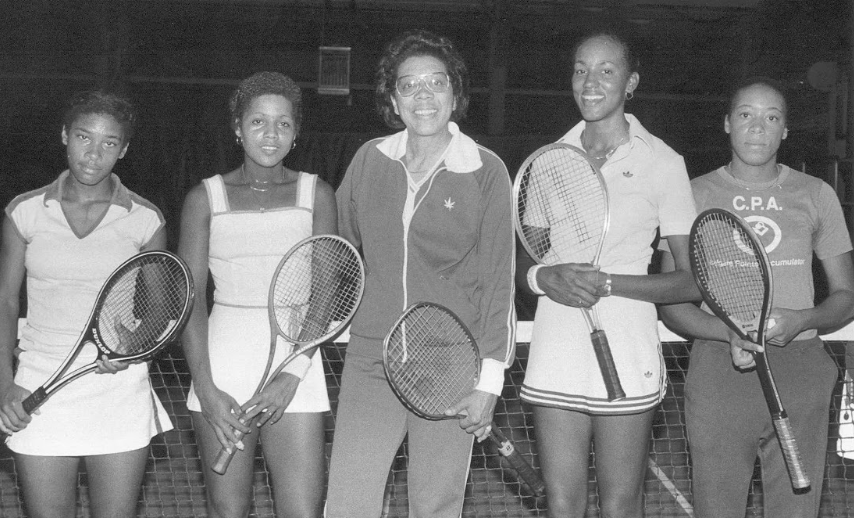2 years ago, I had the privilege of traveling to Harlem to speak on behalf of the American Tennis Association. The occasion was the renaming of West 143rd Street as Althea Gibson Way.
At the start of this Black History month, as so many people scramble to rewrite history, and question the value of keeping it alive, I thought I would share with you the remarks I made on that day. They are even more valuable today.
Good afternoon,
I’d like to thank the family and estate of Althea Gibson for inviting the American Tennis Association to participate in such an important and moving event.
The ATA has the distinction of being the oldest African American sports organization in the United States. As much as we would like to think that we helped shape the trajectory of Black players like Althea, by giving them a national platform on which to compete when other doors were closed to us, it’s equally true that the ATA wouldn’t have survived 100 years if players like Althea hadn’t chosen to believe in our potential and share their talents with us, as Althea did as an ATA champion.
I’ve been the Chief Executive Officer of Sportsmen’s for 14 years, which seems like a long time until I remind myself that Sportsmen’s, the oldest indoor non-profit tennis club in the United States built by and for the Black community, is more than 60 years old. Like the ATA, we know that everyone with whom we have the pleasure of crossing paths takes a little piece of Sportsmen’s with them, and leaves a little of themselves behind. We know that’s what happened when Althea visited Sportsmen’s to give of her time and talent with our kids and coaches, and to help develop 4 aspiring black female players, two of whom have already spoken here today.
I’ll close my brief remarks by acknowledging how appropriate it is to name a street after Althea. Statues and buildings are wonderful, but a street is something that we use to get from one place to another. We know Althea moved. On the court. In life. When she wasn’t satisfied with where she was or how things were going for her, she moved on to something bigger and better. And again, she took others with her. And she moved us, with her music, words and thoughtfulness.
A street can also connect and unite communities. Althea Gibson Way connects one end of West 143rd Street to the other. Althea united a fractured, broken tennis world, that didn’t even realize it was broken. She joined the sports of golf and tennis. Her love and her reach were transcontinental. And she brought all of us here today.
She’s resting now, but Althea Gibson Way will continue to move and unite people forever more.
Thank you Althea.
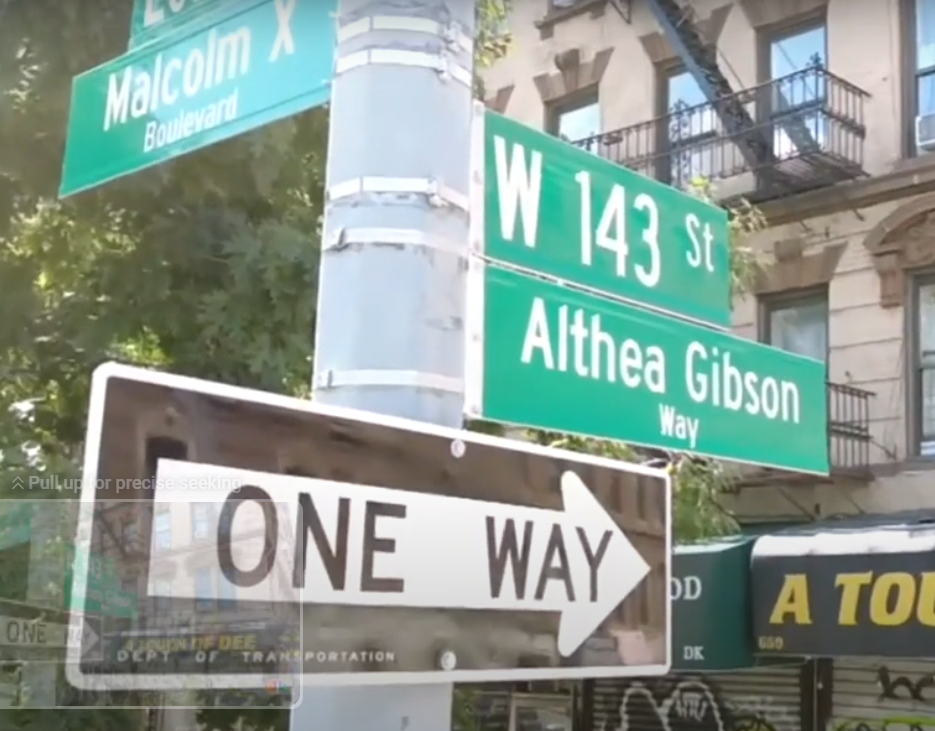
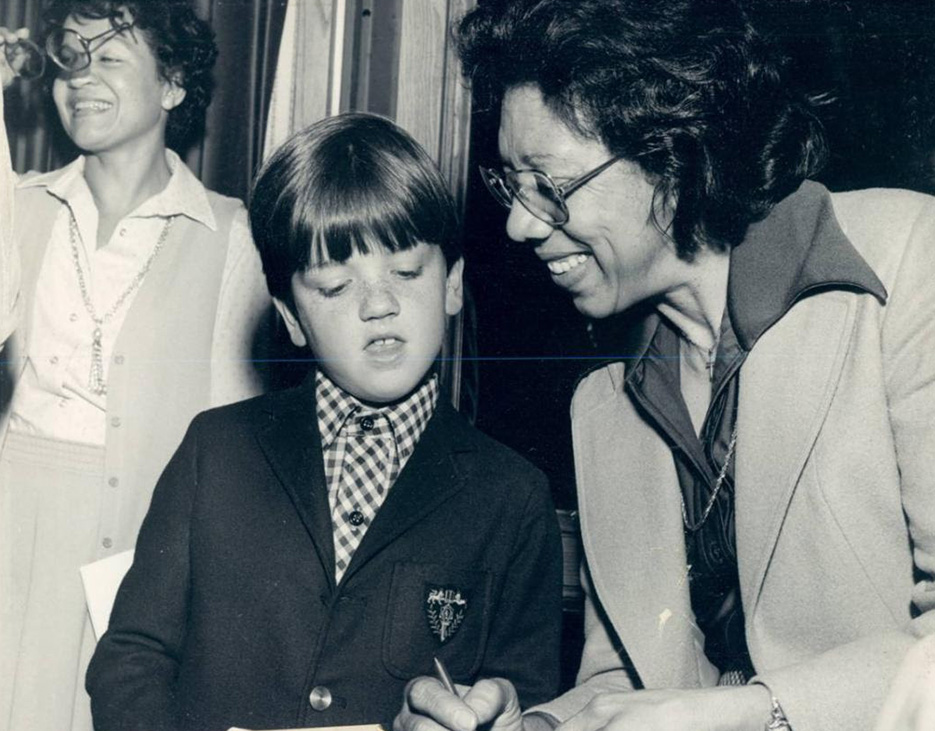
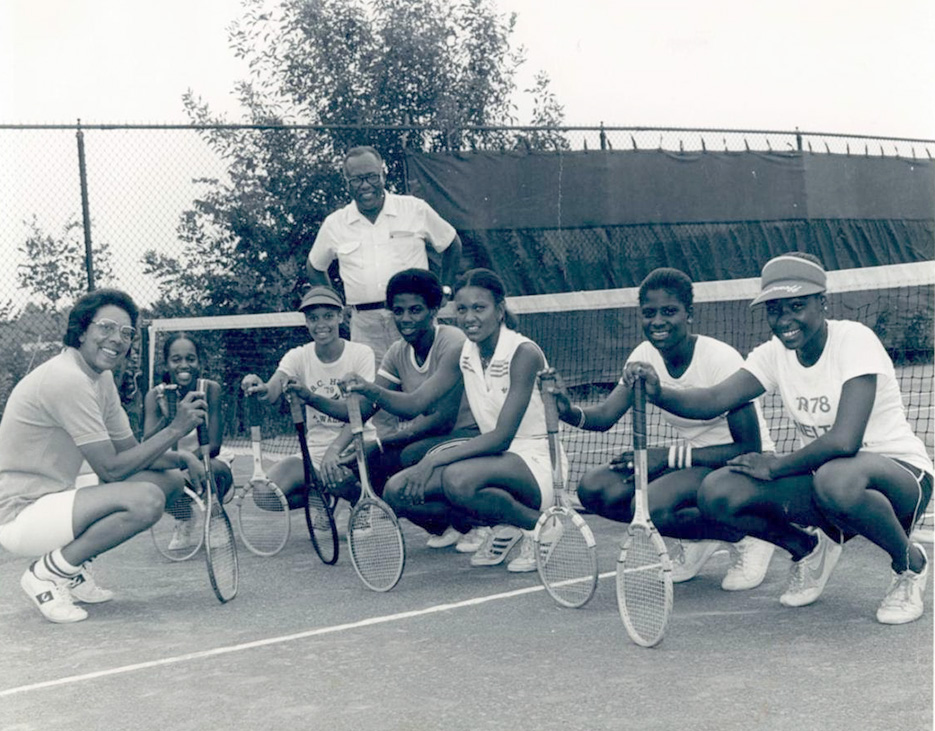
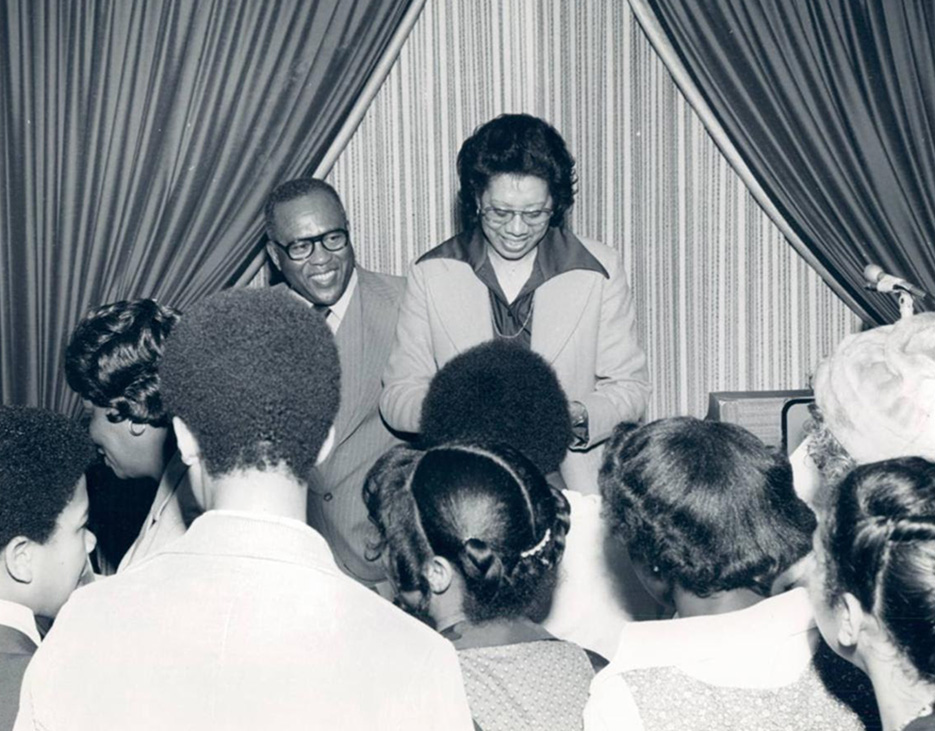
Photo above: The great Althea Gibson, center, with (l-r) Zina Garrison, the late Andrea Buchanan, Leslie Allen and Kim Sands at a tennis clinic at Sportsmen’s in 1979, organized by Sportsmen’s founder, Jim Smith. Leslie Allen discusses the clinic here.
Photos left to right: Althea Gibson Way, West 143rd Street in Harlem, where Althea played tennis in the street in front of her building; Althea with a young Sportsmen’s player, Paul Carrig, at a Sportsmen’s fundraiser in 1979.; In addition to mentoring 4 rising WTA stars, Althea shared her gifts with young Sportsmen’s Junior Girls, with Jim Smith looking on.; Althea signing autographs at Sportsmen’s fundraiser in 1979.
No doubt, these are frustrating times. Some might say that we may as well pull the sheets over our heads and wait for it to be over. When that temptation creeps into your mind, remember that Althea didn’t just fight to get in the game; she got in it to win it.
Staying on the battlefield. Join us in the fight.
Toni Wiley
Chief Executive Officer
Sportsmen’s Tennis & Enrichment Center

